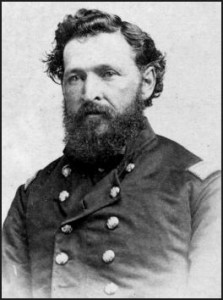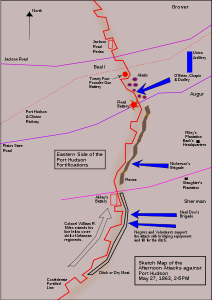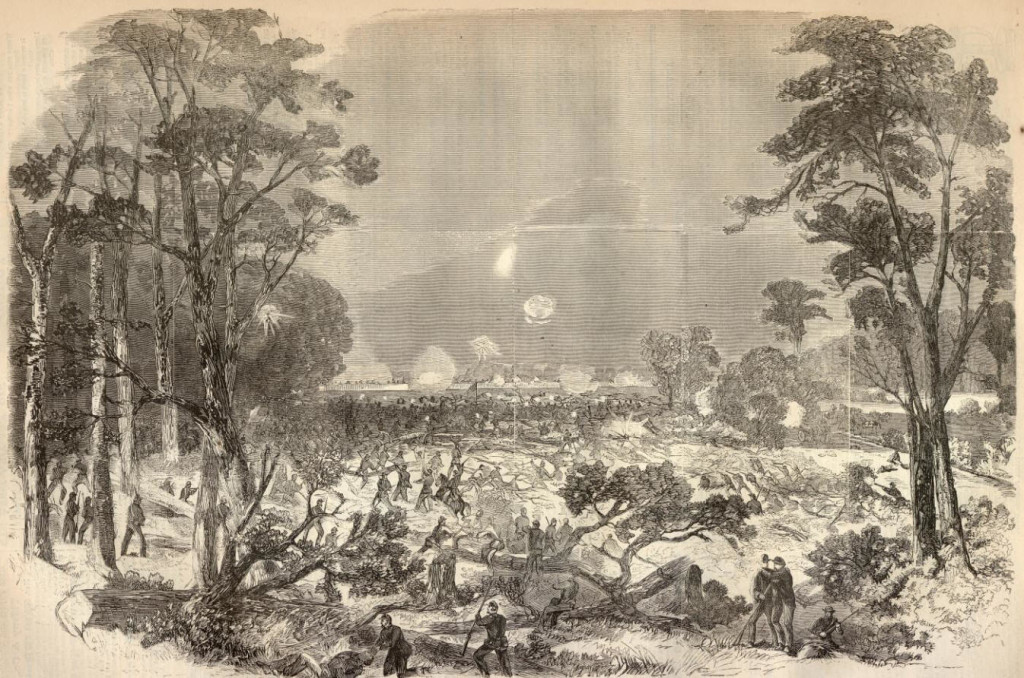From The New-York Times June 13, 1863:
IMAGINARY FEARS.
— One of our neighbors affects great alarm over the “fearful danger of a centralization and consolidation of the Government.” Just at this moment this sounds like a rather dismal joke. With one section of the Union doing everything in its power to destroy the Government, — with half a million of armed men in the field fighting to rend the Union asunder, — with men scattered throughout the North aiding them in the effort, and every foreign hater of free institutions giving them the benefit of moral sympathy and material aid, there would not seem to be any danger of “centralization” fearful enough to alarm the soul of an average patriot. The terrified democracy must have been reduced to a very feeble state, if it is thus affrighted at imaginary dangers. The danger that threatens the country now is disunion not consolidation. The fear is lest we should fall to pieces, — lest the Southern States should break away from the Union, and set the example of successful revolt to other States When that peril shall have been averted we can attend to others; but while it continues to overhang the nation, all others are comparatively insignificant.
In a letter 150 years ago this week President Lincoln provided a thorough justification for his administration’s consolidating and centralizing of federal power: It’s only temporary and entirely constitutional, partly because it’s only temporary. You can read the entire lengthy letter at Project Gutenberg and at Teaching American History. Here are some excepts.
From The Papers And Writings Of Abraham Lincoln, Volume Six:
TO ERASTUS CORNING AND OTHERS.
EXECUTIVE MANSION, WASHINGTON, June 12, 1863.
HON. ERASTUS CORNING AND OTHERS.
GENTLEMEN:—Your letter of May 19, inclosing the resolutions of a
public meeting held at Albany, New York, on the 16th of the same month, was received several days ago.
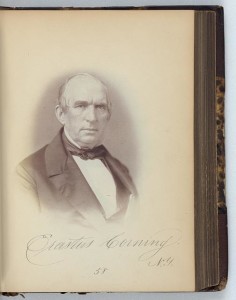
corresponding constitutional concerns
The resolutions, as I understand them, are resolvable into two propositions—first, the expression of a purpose to sustain the cause of the Union, to secure peace through victory, and to support the administration in every constitutional and lawful measure to suppress the rebellion; and, secondly, a declaration of censure upon the administration for supposed unconstitutional action, such as the making of military arrests. And from the two propositions a third is deduced, which is that the gentlemen composing the meeting are resolved on doing their part to maintain our common government and country, despite the folly or wickedness, as they may conceive, of any administration. This position is eminently patriotic, and as such I thank the meeting, and congratulate the nation for it. My own purpose is the same; so that the meeting and myself have a common object, and can have no difference, except in the choice of means or measures for effecting that object.
And here I ought to close this paper, and would close it, if there were no apprehension that more injurious consequences than any merely personal to myself might follow the censures systematically cast upon me for doing what, in my view of duty, I could not forbear. The resolutions promise to support me in every constitutional and lawful measure to suppress the rebellion; and I have not knowingly employed, nor shall knowingly employ, any other. But the meeting, by their resolutions, assert and argue that certain military arrests, and proceedings following them, for which I am ultimately responsible, are unconstitutional. I think they are not. The resolutions quote from the Constitution the definition of treason, and also the limiting safeguards and guarantees therein provided for the citizen on trial for treason, and on his being held to answer for capital or otherwise infamous crimes, and in criminal prosecutions his right to a speedy and public trial by an impartial jury. They proceed to resolve “that these safeguards of the rights of the citizen against the pretensions of arbitrary power were intended more especially for his protection in times of civil commotion.” And, apparently to demonstrate the proposition, the resolutions proceed: “They were secured substantially to the English people after years of protracted civil war, and were adopted into our Constitution at the close of the Revolution.” Would not the demonstration have been better if it could have been truly said that these safeguards had been adopted and applied during the civil wars and during our Revolution, instead of after the one and at the close of the other? I too am devotedly for them after civil war, and before Civil war, and at all times, “except when, in cases of rebellion or invasion, the public safety may require” their suspension. …
Prior to my installation here it had been inculcated that any State had a lawful right to secede from the national Union, and that it would be expedient to exercise the right whenever the devotees of the doctrine should fail to elect a president to their own liking. I was elected contrary to their liking; and accordingly, so far as it was legally possible, they had taken seven States out of the Union, had seized many of the United States forts, and had fired upon the United States flag, all before I was inaugurated, and, of course, before I had done any official act whatever. The rebellion thus begun soon ran into the present civil war; and, in certain respects, it began on very unequal terms between the parties. The insurgents had been preparing for it more than thirty years, while the government had taken no steps to resist them. The former had carefully considered all the means which could be turned to their account. It undoubtedly was a well-pondered reliance with them that in their own unrestricted effort to destroy Union, Constitution and law, all together, the government would, in great degree, be restrained by the same Constitution and law from arresting their progress. Their sympathizers invaded all departments of the government and nearly all communities of the people. …
Ours is a case of rebellion—so called by the resolutions before me—in fact, a clear, flagrant, and gigantic case of rebellion; and the provision of the Constitution that “the privilege of the writ of habeas corpus shall not be suspended unless when, in cases of rebellion or invasion, the public safety may require it,” is the provision which specially applies to our present case. This provision plainly attests the understanding of those who made the Constitution that ordinary courts of justice are inadequate to “cases of rebellion”—attests their purpose that, in such cases, men may be held in custody whom the courts, acting on ordinary rules, would discharge. Habeas corpus does not discharge men who are proved to be guilty of defined crime, and its suspension is allowed by the Constitution on purpose that men may be arrested and held who can not be proved to be guilty of defined crime, “when, in cases of rebellion or invasion, the public safety may require it.”
This is precisely our present case—a case of rebellion wherein the public safety does require the suspension— … Of how little value the constitutional provision I have quoted will be rendered if arrests shall never be made until defined crimes shall have been committed, may be illustrated by a few notable examples: General John C. Breckinridge, General Robert E. Lee, General Joseph E. Johnston, General John B. Magruder, General William B. Preston, General Simon B. Buckner, and Commodore Franklin Buchanan, now occupying the very highest places in the rebel war service, were all within the power of the government since the rebellion began, and were nearly as well known to be traitors then as now. Unquestionably if we had seized and had them the insurgent cause would be much weaker. But no one of them had then committed any crime defined in the law. Every one of them, if arrested, would have been discharged on habeas corpus were the writ allowed to operate. In view of these and similar cases, I think the time not unlikely to come when I shall be blamed for having made too few arrests rather than too many. …
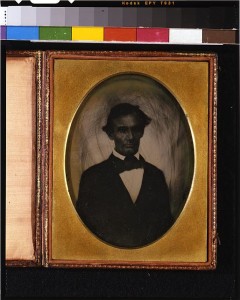
protecting the public safety (1858 photo)
And yet, let me say that, in my own discretion, I do not know whether I would have ordered the arrest of Mr. Vallandigham. While I cannot shift the responsibility from myself, I hold that, as a general rule, the commander in the field is the better judge of the necessity in any particular case. Of course I must practice a general directory and revisory power in the matter. …
… that it will afford me great pleasure to discharge him so soon as I can by any means believe the public safety will not suffer by it.
I further say that, as the war progresses, it appears to me, opinion and action, which were in great confusion at first, take shape and fall into more regular channels, so that the necessity for strong dealing with them gradually decreases. I have every reason to desire that it should cease altogether, and far from the least is my regard for the opinions and wishes of those who, like the meeting at Albany, declare their purpose to sustain the government in every constitutional and lawful measure to suppress the rebellion. Still, I must continue to do so much as may seem to be required by the public safety.
A. LINCOLN.

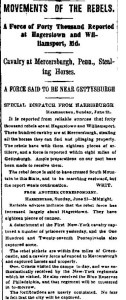

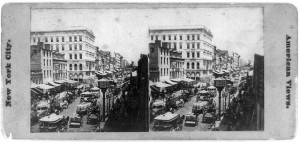
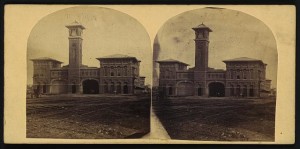
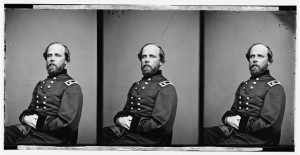
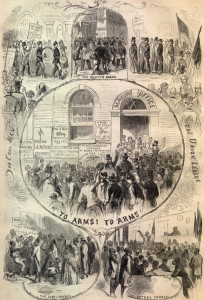
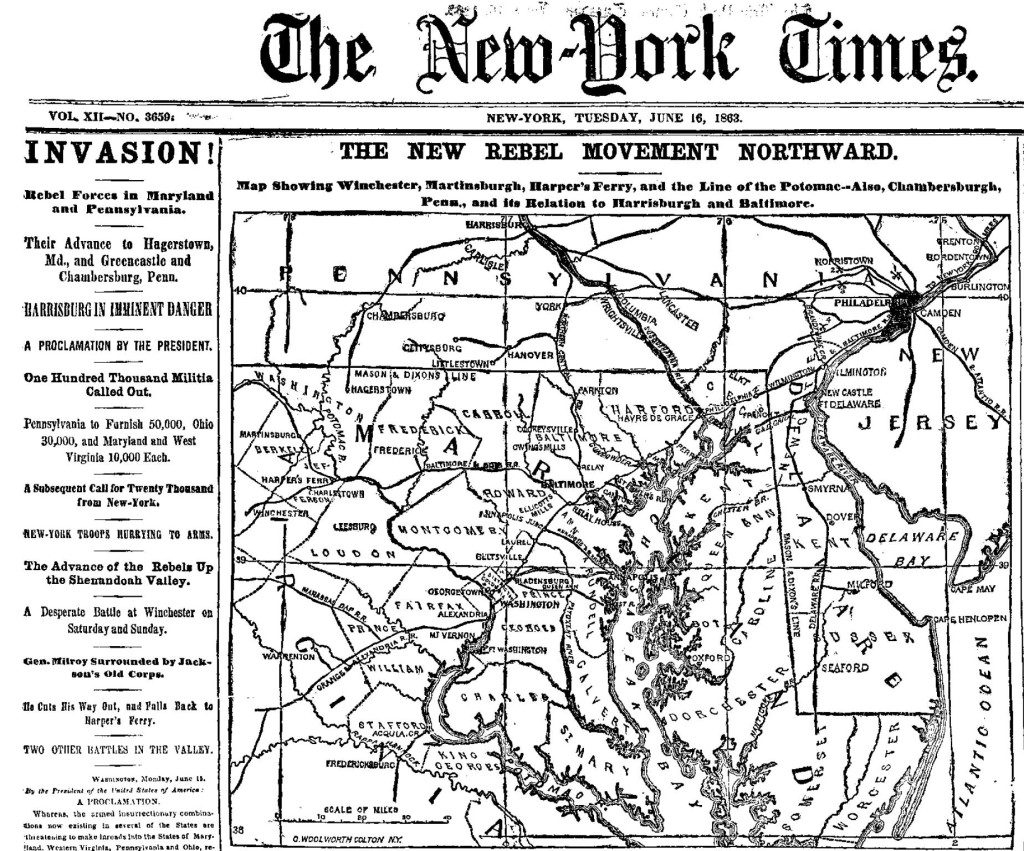
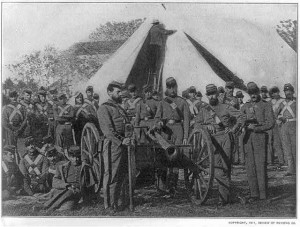
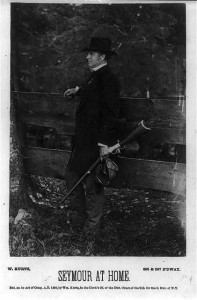

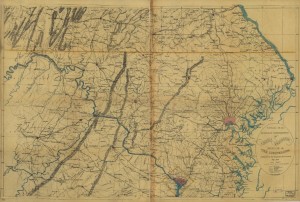
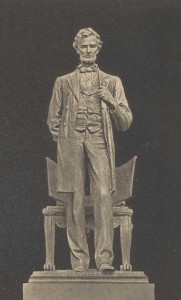
![Columbus, O., taken from the blind asylum (Published by Felch and Riches, engravers, [1856 or 1857]; LOC: LC-USZ62-99154)](https://www.bluegrayreview.com/wp-content/uploads/2013/06/3b45204r-300x165.jpg)
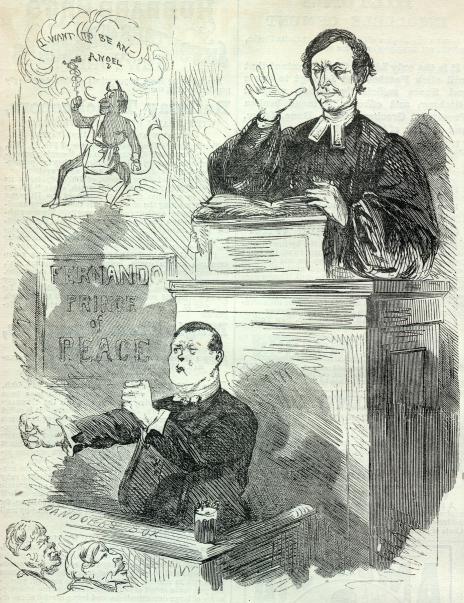


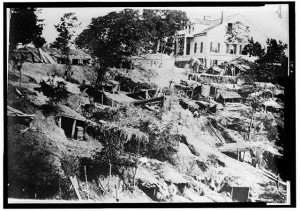
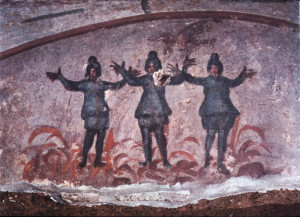
![The siege of Vicksburg - Major General U.S. Grant, commanding (by Alfred Edward mathews, Cin[cinnati], O[hio] : Middleton, Strobridge & Co. Lith., c1863.; LOC: LC-DIG-pga-03977)](https://www.bluegrayreview.com/wp-content/uploads/2013/06/03977r-300x227.jpg)
